Earth and Human Activity

Educators and Parents, Sign Up for The Cheat Sheet
Weekly updates to help you use Science News Explores in the learning environment
Thank you for signing up!
There was a problem signing you up.
-
 Agriculture
AgricultureNew technologies might help keep drought-prone farms green
After learning how much damage drought can do to crops, two teens designed ways to detect a thirsty plant and make sure it gets enough water.
-
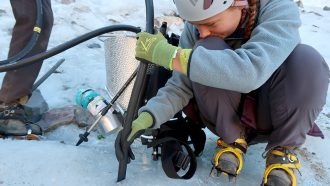 Environment
EnvironmentLocal glacier could be gone in a decade, young scientist finds
A teen calculated the volume of a glacier by drilling into it with jets of steam — then used that to estimate how long before all its ice will be gone.
-
 Tech
TechNo animal died to make this steak
The ribeye steak is the first of its kind, and the latest in a growing list of meats printed with a 3-D bioprinter instead of being harvested from an animal.
-
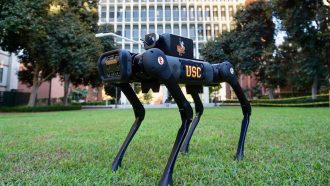 Tech
TechNew robots can clean virus-laden surfaces so people won’t have to
Smart and nimble cleaning robots will soon help disinfect spaces. They twist and bend to hit hard-to-reach spaces with UV light or cleansing sprays.
-
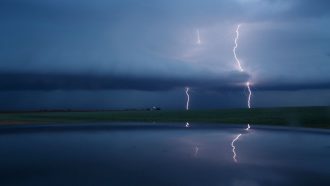 Earth
EarthHere’s how lightning may help clean the air
Airplane observations show that storm clouds can generate huge quantities of air-cleansing chemicals known as oxidants.
-
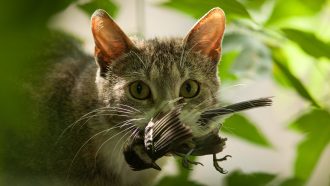 Ecosystems
EcosystemsAnalyze This: Invasive species cost the world billions each year
A new study estimates that invasive species have cost the world more than $1 trillion since 1970. That’s almost certainly an underestimate.
-
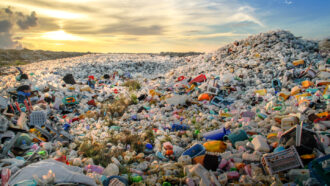 Chemistry
ChemistryNew recycling technologies could keep more plastic out of landfills
Recycling plastics is really hard — especially into useful materials. But new chemical tricks could make recycling easier.
-
 Brain
BrainPatterns in brain activity can identify who will struggle to read
Certain patterns of brain activity predict whether teens are strong readers or will struggle. Those diagnostic patterns show up even when doing math.
-
 Climate
ClimateSurfing the winds would make future jet travel greener
Simple route changes could drastically cut fuel use and greenhouse-gas emissions, a new study finds.
-
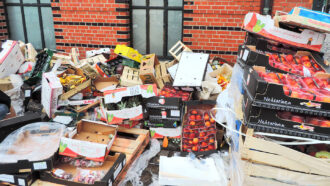 Environment
EnvironmentThe world wastes roughly a sixth of the food produced each year
A new United Nations report shows where wastes can be reduced, which would decrease hunger and emissions of climate-warming greenhouse gases.
-
 Health & Medicine
Health & MedicineUrban pollution can pose unseen risks to kids’ immunity and more
A trio of new studies links immune changes and high blood pressure to inhaling bad air.
-
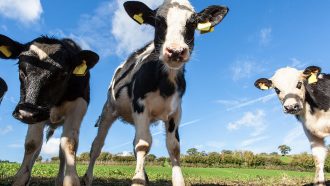 Animals
AnimalsAnalyze This: Cows burp less methane after early-life treatment
Calves that receive the 14-week treatment belch less of the greenhouse gas, possibly due to shifts in their gut microbes.